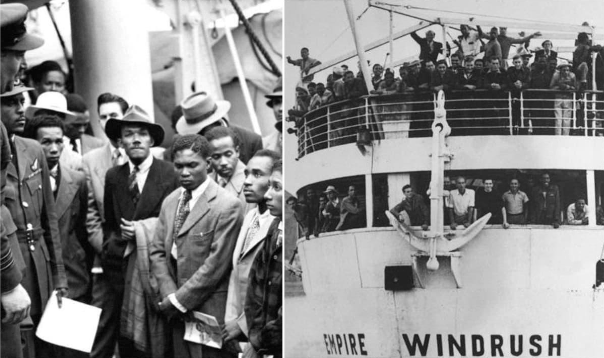Services
Menu
Shop news

In the heart of Neasden, London, sits Mane Culture, a barber shop that has become far more than a place for fresh fades and close shaves. Since its founding, Mane Culture has evolved from a grooming space to a community cornerstone, providing not only high-quality barbering services but also essential support, outreach, and empowerment for local residents. With the support of Brent Council, friends, family, and dedicated patrons, Mane Culture has transformed into a venue for positive change, raising awareness about mental health, men’s health, and the power of uplifting local youth. The Journey of Community Outreach Owner and founder of Mane Culture, who has roots in the community himself, envisioned a barber shop that would transcend its basic purpose and serve as a cultural haven. From day one, Mane Culture sought to represent something meaningful, a place where clients could not only leave looking their best but feeling supported and understood. This mission attracted the attention and support of the Brent Council, which saw the potential in the barbershop's unique approach to community involvement. Together with Brent Council and local organizations, Mane Culture began a journey of impactful community outreach. They organized various events that spoke to some of the community's most pressing concerns, including men's mental health and prostate cancer awareness, especially among Black men. In Black communities, issues like mental health and cancer awareness are often overlooked, so Mane Culture’s outreach efforts play a critical role in educating people and breaking down stigmas. By partnering with local health professionals, the barbershop has created safe spaces for open discussions, helping to build a culture of support and proactive health awareness in Neasden. Raising Awareness on Mental Health and Prostate Cancer For Mane Culture, addressing mental health goes hand-in-hand with their role as barbers and community figures. Recognizing that men, particularly Black men, often face social stigmas around discussing mental health, the team at Mane Culture worked tirelessly to create initiatives that encourage openness. Through workshops and casual meet-ups, the shop has helped normalize conversations about mental health, providing resources and guidance on where individuals can seek professional help if needed. Alongside mental health, Mane Culture has been at the forefront of prostate cancer awareness. With Black men being at a statistically higher risk for prostate cancer, the barber shop partnered with health organisations to educate patrons on early detection and regular screenings. Hosting free information sessions and health fairs, the barbershop transformed into a platform for health advocacy, where the simple act of coming in for a haircut could become a life-changing encounter. Investing in the Next Generation: Building Up Our Youth Mane Culture believes in supporting Neasden’s youth, understanding that they represent the community's future. Through mentorship programs, barbering workshops, and educational sessions, they provide young people with practical skills, mentorship, and guidance on everything from career choices to building self-confidence. These sessions give teenagers and young adults a constructive outlet and teach them the value of skill, dedication, and community. Working with schools and local organisations, Mane Culture has helped create programs designed to address the unique challenges that young people in the area face. These initiatives provide a positive influence, offering life lessons and experiences that go far beyond haircuts. Bringing People Together: The Mane Culture Carnival One of Mane Culture’s most vibrant community initiatives has been the Mane Culture Carnival, an annual event aimed at celebrating the rich culture and unity within Neasden. Our vision is to start as a small neighbourhood gathering with the potential to blossom into a full-fledged celebration, drawing locals from all walks of life for a day of fun, music, food, and community pride. From energetic music performances to delicious local food vendors, the carnival will encapsulate everything Mane Culture stands for: inclusivity, joy, and the celebration of Neasden’s vibrant identity. With each carnival, Mane Culture hope is to not only bring people together but also raise funds for causes close to the community’s heart, including mental health organisations, prostate cancer research, and youth development programs growing it into one of Neasden's most anticipated gatherings, with local businesses and artists contributing to make it a special day for all. Looking Ahead: A Brighter Future for Neasden Mane Culture’s commitment to Neasden goes beyond haircuts and style—it’s a commitment to the betterment of the community itself. With the ongoing support of Brent Council, local organizations, friends, family, and a growing community of patrons, Mane Culture will continue its journey to elevate Neasden, addressing important social issues, supporting the youth, and hosting events that make Neasden a richer, more vibrant place to live. As they look to the future, the team at Mane Culture is excited to expand its programs and continue being a force for positive change. Whether through empowering conversations, meaningful workshops, or vibrant carnivals, Mane Culture will remain a beacon of hope, unity, and pride for Neasden’s residents. Here, a haircut is more than just a haircut—it's a step towards a stronger, healthier, and more connected community.

Let us take some time to appreciate the passion, commitment and diligence of the Windrush Generation: those British nationals living in the Caribbean, who left their family and livelihoods to help rebuild Britain after the Second World War. Why celebrate National Windrush Day By the end of the Second World War (1939-1945), bombed out buildings coupled with lost lives, left Britain desperate for manpower to restore its industries, homes, transport network and services. Many Caribbean countries like Jamaica, the Bahamas, Trinidad and Guyana were then part of the British Empire and the Commonwealth, and its citizens were invited to Britain to help rebuild the “motherland.” They felt honoured and excited to do so. On 22 June 1948 ‘HMT Empire Windrush’ arrived in Britain from Australia, via the Caribbean, with 492 loyal adults and families, keen to rebuild Britain. Similar journeys continued up until 1973, bringing some 500,000 British Caribbean nationals, by both sea and air. They are known as the Windrush Generation and 22 June was marked as Windrush Day . This year, 2023, marks the 75th anniversary of National Windrush Day. Windrush Day is intended to raise awareness in communities across the country, to recognise and honour the incredible and invaluable contributions that were made by the Windrush Generation and their descendants to rebuild Britain, braving the cold weather, menial jobs, racism, discrimination, and substandard housing. Windrush Day will keep the legacy of the Windrush Generation alive, so that future generations acknowledge and respect their contribution to our diverse British society. Why did the Windrush scandal happen During the late 1960s, improvements were seen in the labour market and the economy was strengthening. The British Government decided that they needed to control the alleged high level of immigration into the UK, especially preventing citizens of the commonwealth from living in Britain permanently. As many of the younger Windrush Generation arrived on their parents’ passports, and the Home Office destroyed thousands of landing cards and other records, many had little documentation to prove their right to remain in the UK. The Windrush scandal is a national disgrace that showed the ignorance and thoughtlessness of the Home Office, and complete disregard for the Windrush Generation. It has also been reported that this scandal was totally foreseeable and avoidable. This generation was cruelly classed as “illegal immigrants” and “undocumented migrants,” as such they lost their access to housing, healthcare, bank accounts and driving licenses. Many were callously placed in immigration detention centres, prevented from travelling abroad and threatened with forcible removal, while others were deported to countries they hadn’t seen since childhood. This unjust treatment, which continues today, is known as the Windrush Scandal . A Windrush Compensation Scheme attempts to pacify the atrocious ill treatment of these British Caribbean nationals. This scheme is equally scandalous: it is complex to navigate, there is a lack of free legal advice, claims take months to process, and compensation offers don’t come close to what people lost. Worse yet, the policies that led to this scandal are still in place. The Home Office has been heavily criticised for its ineffectiveness and slowness and there are calls to remove the management of this scheme from the remit of the Home Office. The story of Allyson Williams MBE – a member of the Windrush Generation Allyson came to Britain by air on 16 May 1969 from Trinidad & Tobago with dreams of becoming a nurse, like her mother. At just 21 years old she travelled solo, leaving behind her doting parents, five younger siblings, and great prospects in the civil service (where she had received two promotions in three years). When asked why she responded to Britain’s plea for help, Allyson said, “I felt very important and honoured when presented with the opportunity to rebuild the mother land.” The Ministry of Health in Trinidad arranged everything: her four-year course studying nursing and midwifery at the Whittington Hospital, North London; accommodation in the Nurses’ home; a student salary; and free meals.
Our Customers
About Us
Mane Culture is a unisex salon located in Neasden, specialising in natural hair and men's designer cuts.
Business Hours
- Mon - Sat
- -
- Sunday
- Closed
Contact
309 Neasden Lane
NW10 1QR London, United Kingdom








